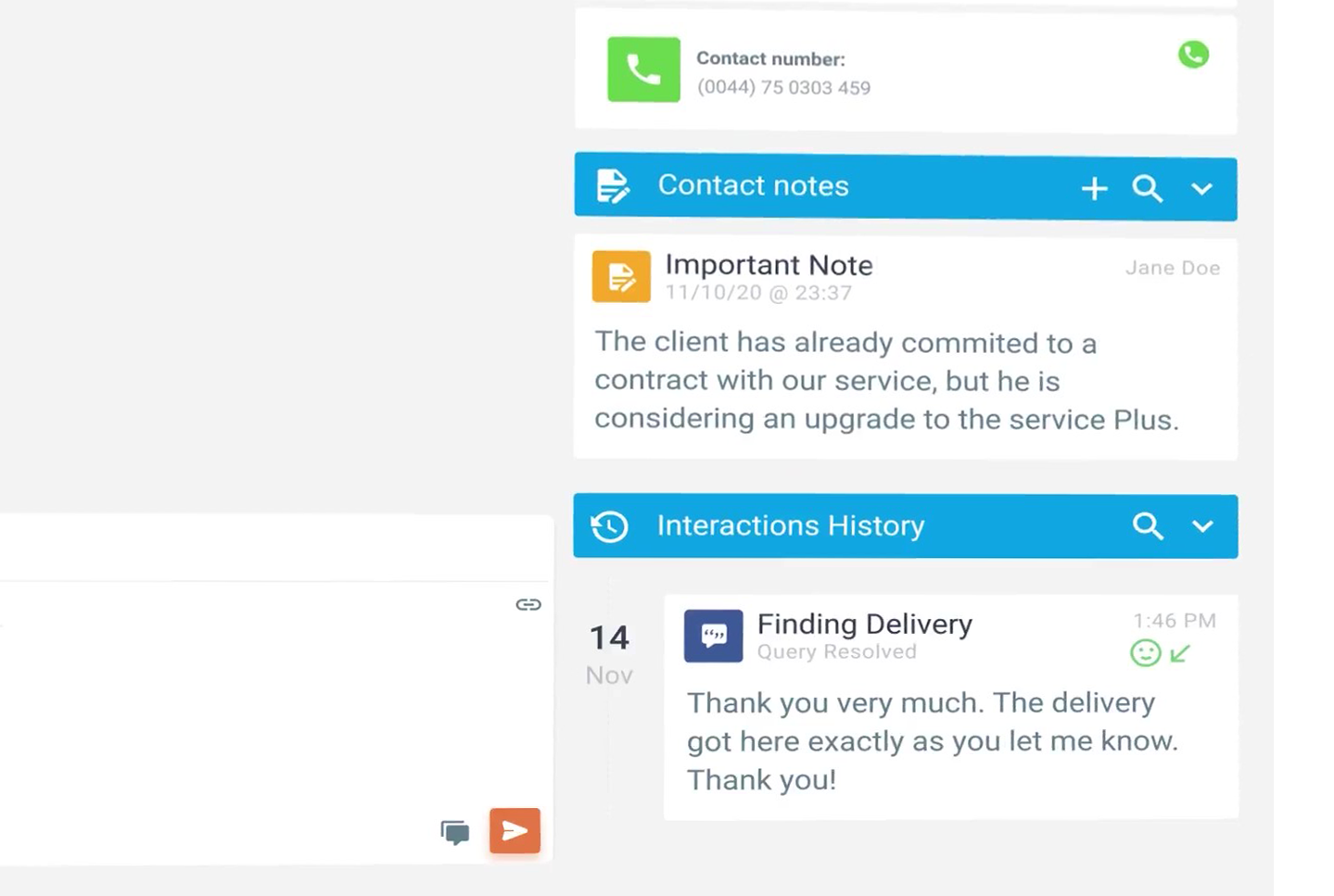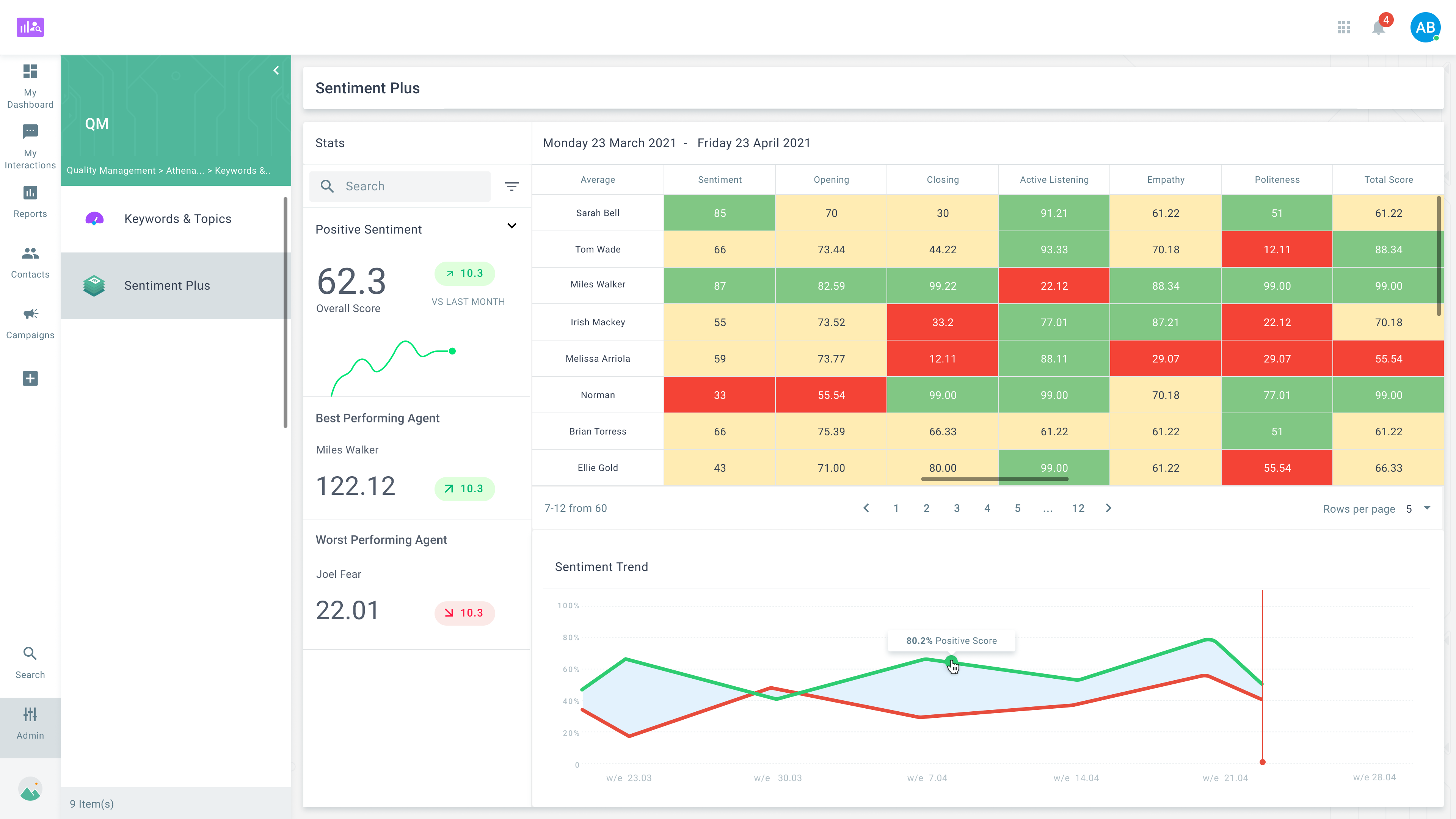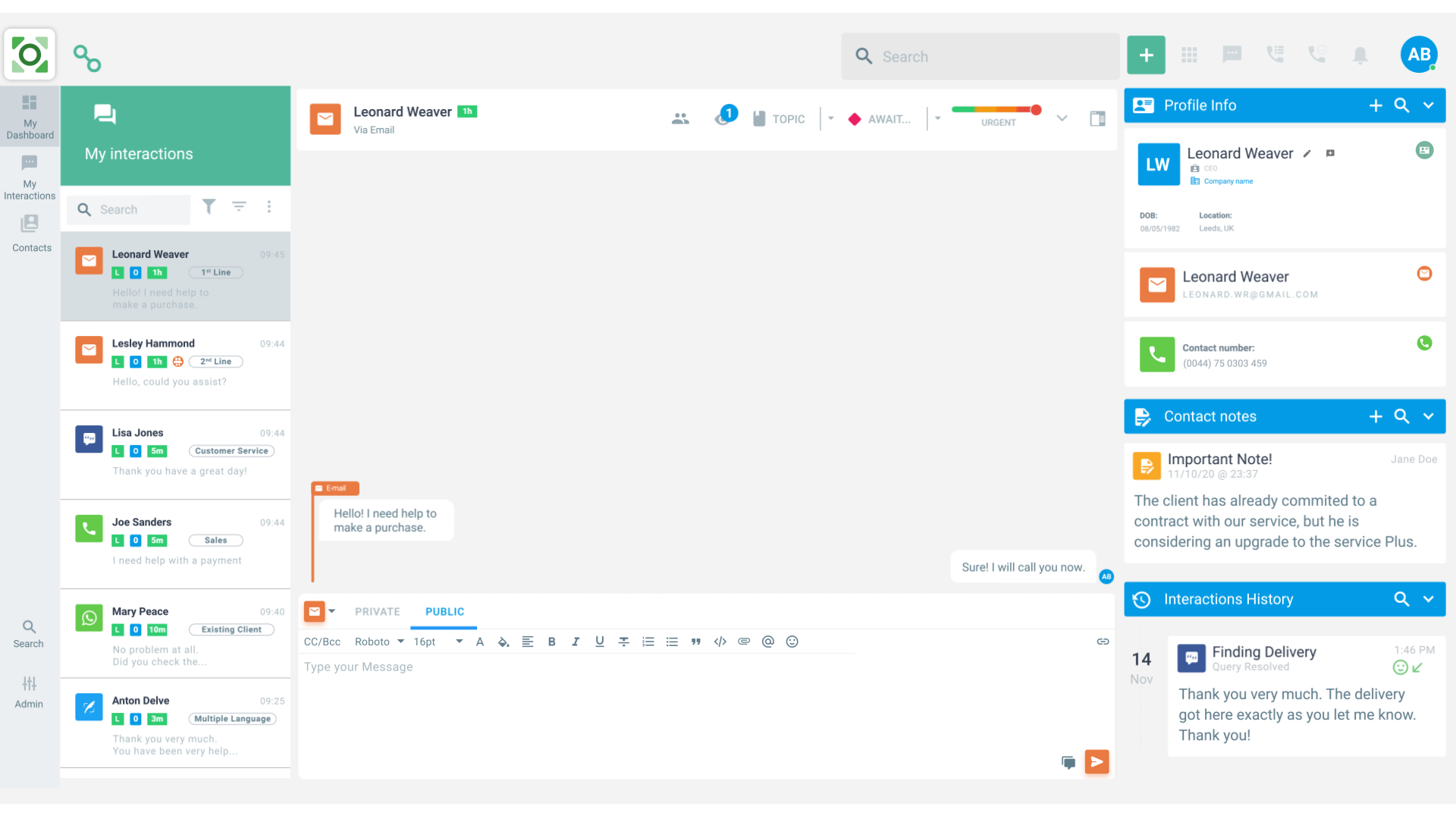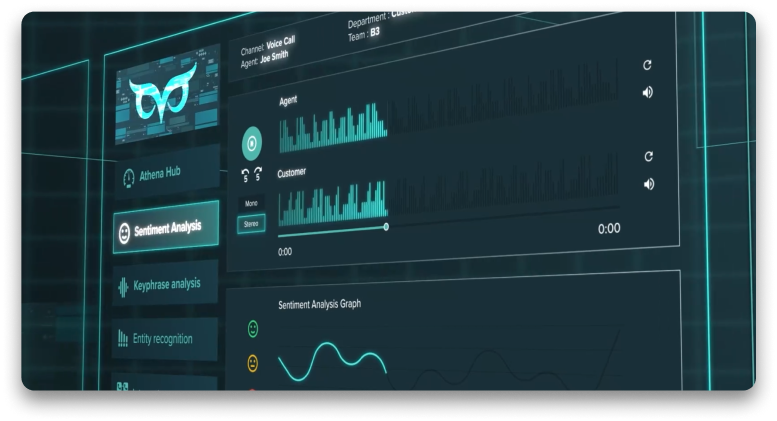When dealing with customers or clients, contact center agents have to be prepared for a wide range of potential challenges, many of which can trigger some of their biggest customer service fears.
Though many people can usually manage or avoid their fears in day-to-day life or manage them with little interruption, Contact Center agents often lack the necessary tools to tackle these fears head on.
To help Contact Centers teams tackle these fears and improve the quality of their agents’ work life, we explore five of the biggest contact fears and the CX technology they can use to overcome them.
The Biggest Contact Center fears + CX features to overcome them
1. Fear of the unknown
When reaching out as a Contact Center agent, there are many variables that need to be considered before and during the process, e.g. does the person want to be contacted? Is now a good time to talk to them about this product? Or are the details you have for the customer correct and up-to-date?
Feeling unsure about any of these questions can make a Contact Center agent fear they will miss their weekly targets or make them feel unprepared for a conversation with customers without having enough information beforehand.
To combat this fear of the unknown, contact centers should equip their agents with as much information as they can about the people they are contacting. This can be done with Contact Center platforms that integrate with CRMs, provide interaction history or contact notes from agents as standard.
By utilizing CRM integration in a contact center system, businesses can sync information from their existing customer databases to provide agents with important details about customers, their previous orders or communications.

Customer engagement software such as Connex One can also combat agents’ fear of the unknown by allowing them to view or edit customer information as part of their interactions. Features such as Interaction history or Contact notes attached to customer records can be utilized during calls to provide context for agents, making them feel better equipped for the interaction and give them the confidence to talk to customers.
2. Fear of rejection
Although rejection from customers is to be expected in the daily life of Contact Center agents, the reality of having to deal with said rejection on a daily basis can still prove very daunting.
When manually dialing through call lists, the fear of customers not answering or being sent to voicemail can be very real for agents – especially if their performance is measured through KPIs such as amount of customers spoken to or sales made per day.

To help minimize the probability of calls or customer outreach being rejected or ignored, business managers can arm their contact centers with a Predictive dialer software.
A Predictive dialer is a contact center tool powered by intelligent algorithms, that logs call interactions and adapts to customer behavior to maximize agent’s outbound call rates and increase connection volumes through learned success. Predictive dialing can also limit drop calls with tailored pre-recorded messages when customers answer and direct them to the most appropriate agent with clever workflow call routing.
This automated process to connect live callers with available agents is proven to increase your talk time by 300% when compared to manual dialing.
When using a customer engagement platform like Connex One, that comes with a predictive dialer, contact center managers can utilize this feature to successfully connect agents to more customers and increase talk times – minimizing their chances and fears of being rejected.
3. Fear of choking or losing control
As with any important conversations in life, the prospect of being unable to respond properly or ‘choking’ on a customer call can be a huge fear for many agents.
When businesses build a reputation for providing great customer service, this can set expectations for agents to perform at a very high level – which can lead to stress and panic during calls for less experienced or worried agents.
To help combat these fears, contact centers can look to provide a ‘safety net’ for agents in the form of Whisper Coaching.
Whisper Coaching is a contact center tool which allows managers to listen in and coach agents through customer interactions, without the customer ever being aware of their presence. Managers can communicate with the agent via text or speech during a customer call, allowing them to advise on the best course of action or tell agents what to say next.

This feature can be particularly useful for agents who are new to the role and may not know how to answer certain questions, or can be utilized to help coach underperforming agents who may need advice on how to improve their approach to customer service or sales.
Whisper coaching is particularly valuable to contact centers as unlike escalating or transferring calls to different agents, the flow of customer interactions can remain smooth and uninterrupted – giving them a better impression of the customer service team and helping maintain the reputation of their business.
4. Fear of conflict
Unfortunately, the nature of contact centers will inevitably lead agents to dealing with unhappy or angry customers. Whether it’s because of a problem with their product or because the customer is unhappy with how they are being treated by the business, customer interactions can often become unpleasant or even verbally abusive for agents.
For many agents, this is a common worry, with the fear of possible conflict or verbal abuse from customers becoming a deterrent to them making calls or reaching out to potential or existing customers.
Although agents can sometimes turn to managers to escalate complaints or transfer calls that have turned sour, contact center businesses should try to prevent the likelihood of customers becoming angry with agents and find ways to avoid conflicts occurring.
One way to combat the probability of conflict during these interactions is by utilizing Sentiment Analysis AI. Sentiment Analysis is an artificial intelligence (AI) tool which utilizes speech analysis to evaluate customers words, speech patterns and tone of voice in real-time to determine how they are feeling during a call.

Sentiment Analysis AI can be used by contact centers to analyze agents’ interactions and monitor when customers are showing signs of being displeased or unhappy in the conversation. Connex One’s Sentiment Analysis tool not only logs how customers are feeling on a call, but will then use this information to provide agents with prompts or actions on how to deal with the situation.
To help deal with agents’ fears of conflict or feeling overwhelmed by an angry customer, the tool can reliably guide agents with suggested actions or prompt them to read from a script within the system that has been provided for this type of conflict.
If customers are still not responding well and the conflict continues, the Sentiment Analysis AI can then prompt the agent to escalate or transfer their call to the relevant department, requesting a manager listen in or take over the call through whisper coaching.
By enabling agents to see the possibility of conflict within a customer interaction through Sentiment Analysis, they can be more prepared to face their fears of conflict and take the appropriate action to either deal with or remove themselves from the interaction.
5. Fear of forgetting things
In the life of a contact center agent there can be a lot of things to keep track of; details of products or services, how many calls you have made in your shift, which customers are waiting to hear back from you, or any targets that need to be met at any given time.
With agents’ performance usually relying heavily on how well they can keep on top of these things as well as their sales targets or KPIs, the fear of forgetting details or tasks and the possible consequences for doing so can be a huge fear and cause of stress.
Thankfully, with the right contact center technology, the weight and pressure of having to remember these details can be easily minimized or removed entirely from the agent’s shoulders.
Modern contact center platforms can provide immediate visibility to agents on the most important tasks or details related to their targets. Agent-friendly CX interfaces like the Connex One Interaction Center can easily show agents which customers are waiting to speak to them on a call or awaiting a reply via email or text in an interaction queue. Along with helpful reminders for SLA targets to keep their responses within the timeframe of a business’ or client’s response-time targets.

Agents can also be prompted with reminders for callbacks within the system, which can be set by them in previous customer interactions or alternatively provided by managers or fellow agents who may have been working before the agent started their shift.
These reminders can be invaluable to agents who struggle to keep track of their tasks or which customers to call, and fear forgetting to respond to customers at the correct time.
By accommodating agents with clear and digestible information of whom to contact and when in one system, they can better focus their energy on providing the best service possible for customers and boost their productivity.
To learn more about how Connex One is helping contact center teams to succeed, visit: www.connexone.io, get in touch with our team at hello@connexone.io or request a free demo of our platform here.


